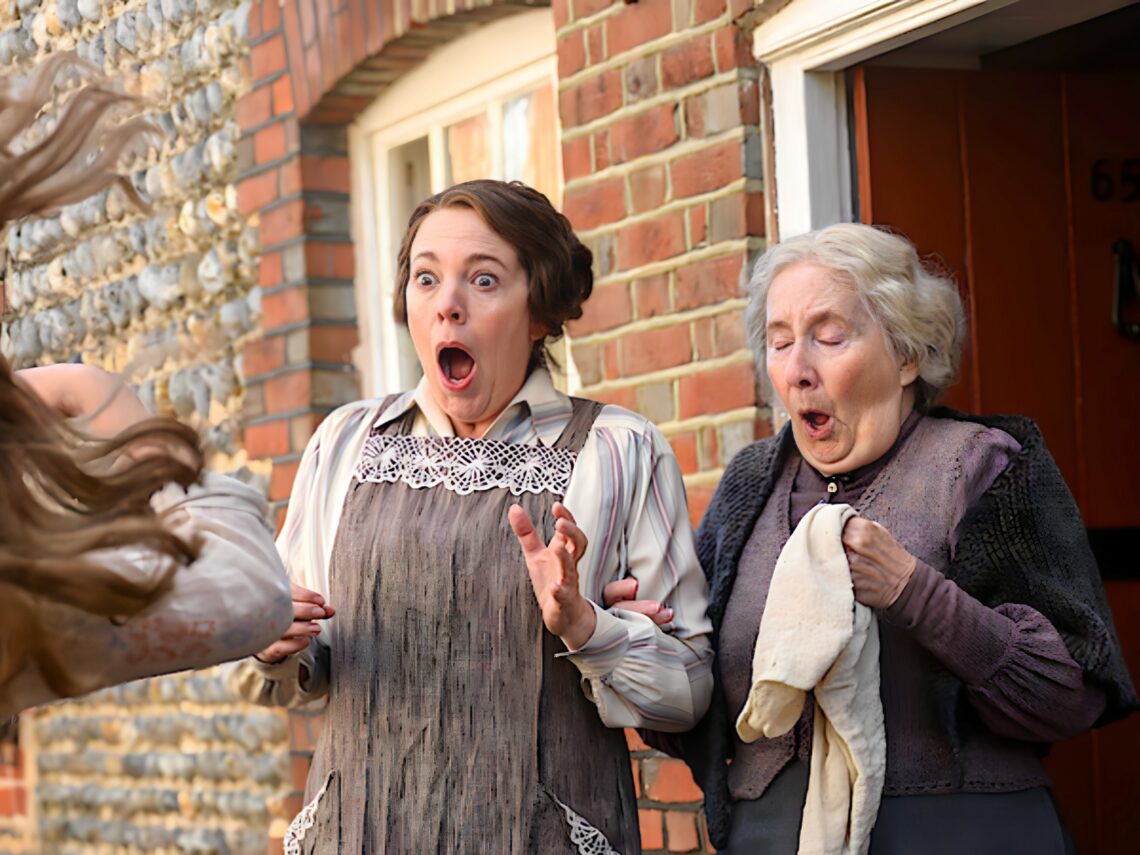
The true story behind Olivia Colman’s ‘Wicked Little Letters’
Since being added to Netflix, director Thea Sharrock’s period set mystery comedy Wicked Little Letters has become one of the most popular movies on the streaming service, with the light-hearted and occasionally foul-mouthed romp winning over subscribers everywhere.
Boasting an array of top British talent including Academy Award winner Olivia Colman, Jessie Buckley, and Timothy Spall, the story zeroes in on a small-town scandal in 1920s Littlehampton. When profanity-laced letters begin circulating among the residents, the idyllic hamlet is shocked to discover one of their number is responsible for spreading such obscene messages around.
Buckley’s Rose Gooding is quickly named as the culprit due to her fondness for a swearword or two, where she’s arrested and sentenced to a trial for her alleged crimes. However, when the local women dig a little deeper into the truth of the matter, they discover that not everything is as cut-and-dried as it appears at first glance.
It sounds like a quaint, whimsical, and sharp-tongued little British comedy, and while that’s precisely what Wicked Little Letters is, it’s also based on a true story. The real Rose did indeed move to Littlehampton in 1918 and form a close friendship with her neighbour Edith Swann, played by Colman.
In a truly British development, the pair eventually fell out over a communal garden, which inspired her to take revenge by weaponizing Rose’s well-documented love of swearing against her. Postcards were sent around the town, with Edith even writing to Rose’s fiancé informing him that she’d had an extramarital affair and was pregnant with another man’s child, which caused him to call off the wedding.
After three months behind bars, Rose returned home after being charged with criminal libel, only to end up back in court when Edith reignited her campaign of obscene letters. Despite her lawyer pointing to the similarities between Edith’s handwriting and the offensive documents, Rose was jailed for another 12 months.
When the letters kept appearing even after she was imprisoned for a second time, suspicions began to arise, which saw Rose released three months into her stretch, with Scotland Yard even getting involved. Officers spotted Edith in the act, but she wasn’t convicted the first time, and it wouldn’t be until 1923 she was finally apprehended for her blue-language reign of terror.
On the surface, Wicked Little Letters sounds so inconsequentially twee that it must have been made up as the basis for a rural mystery comedy, but there’s a reason why so many stories seem so bizarre they can’t be anything other than 100% true.